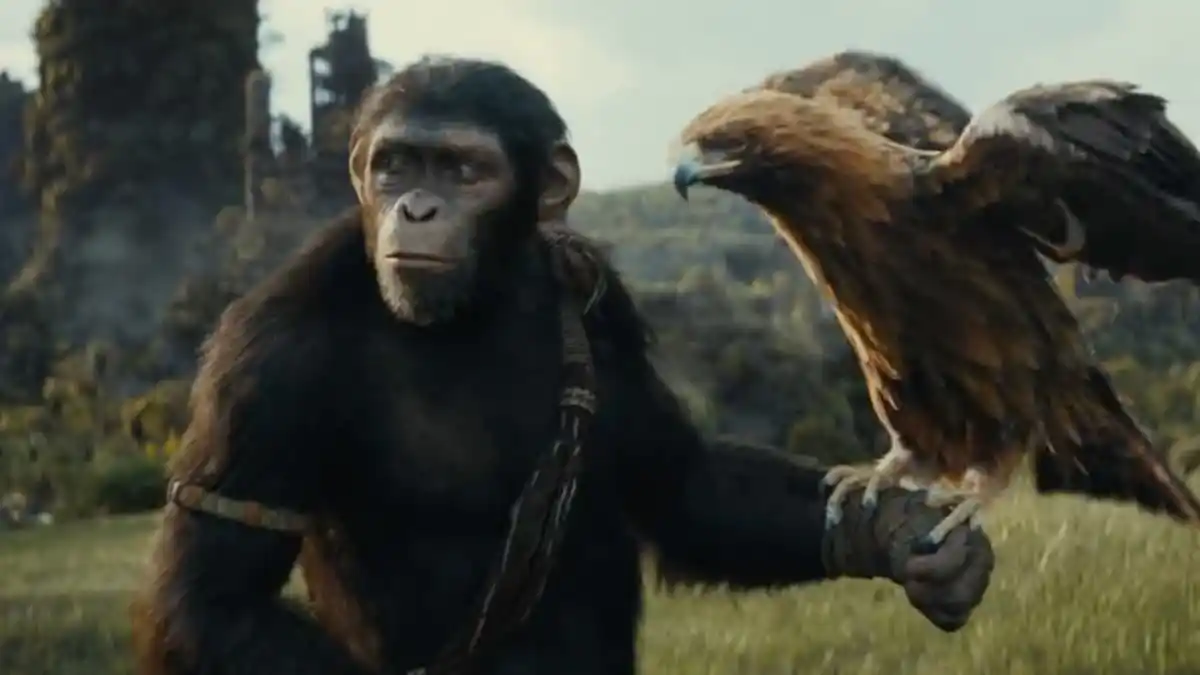Kingdom of the Planet of the Apes may have released around the end of spring, but 2024 is, without a doubt, the summer of simians. Indeed, with business-as-usual positive reviews shoring it up as it rises, dawns on, and wages war upon the box office, Kingdom of the Planet of the Apes has shown us all what sort of tenacious legs this franchise is truly packing, even if those legs look more like arms to us.
Now, there’s a certain saying out there that goes against the idea of having too much of a good thing. Luckily, apes haven’t seemed to stumble upon such a notion in their languages yet, and we’re certainly not complaining; so long as Noa can keep serving the artistic justice that Caesar spearheaded in the 2010s, 20th Century Studios would be wise to keep these films coming.
So, are they?
Are there more Apes movies planned?
Not if the Apes brain trust has anything to say about it. According to a recent interview with The Hollywood Reporter, Amanda Silver and Rick Jaffa (who dreamed up the script for 2011’s Rise of the Planet of the Apes and are therefore responsible for this heavyweight sci-fi canon), Kingdom was intended to kick off a brand new trilogy of films, just as Rise kicked off the “Caesar trilogy.” This is apparent within Kingdom itself as well, as the film’s ending very much sets the stage for future stories.
But even then, the duo revealed further in the interview that their intention was to go all the way to nine films comprised of three trilogies. Indeed, by the time this dream is (hopefully) realized, the apes may be taking over the real world by then.
Jokes aside, it’s an undeniably ambitious goal with many hurdles to potentially fall at, but the Apes films—beyond their penchant for the best possible combination of storytelling and spectacle—possess one tool that makes them stand out from other blockbuster franchises in terms of longevity potential; compartmentalization.
Kingdom is a standalone sequel to War, meaning that while the two films take place in the same universe, they boast little to no narrative ties (Caesar is mentioned frequently throughout Kingdom, but the film treats him as a mythological figure of sorts) with each other.
This allows all the films to exist together in the same cerebral space—in the sense of tackling such themes as racism, power, and the human condition— and within the textual logic of the same world, all without the burden of having to somehow improve upon a singular story; the Caesar trilogy worked because it told an epic, conclusive story, and the Noa trilogy will probably work for the same reasons, as will the standalone story of whichever ape takes center stage for film number seven, eight, and nine.
Indeed, when it comes to leading by example, you can hardly do any better than Apes. Take notes, Marvel, before the Multiverse Saga is entirely crushed beneath its own weight.
Kingdom of the Planet of the Apes is now playing in theaters.
